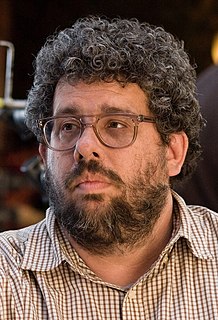A Quote by Jan Hus
I entreat students of letters and other scholars to obey their masters in things good, to imitate them, and diligently apply themselves to letters for the sake of God's honour and their own salvation and that of other men.
Related Quotes
I was always looking for the most dramatic emphasis. One example would be the letter writing, or the reading of the letters. If you remember from the book, they find the letters and then in the most undramatic way they take them downstairs, they get approval, they sit at a table during the day with their own author, across from each other.
Most open letters undoubtedly come from a good place, rising out of genuine outrage or concern or care. There is, admittedly, also a smugness to most open letters: a sense that we, as the writers of such letters, know better than those to whom the letters are addressed. We will impart our opinions to you, with or without your consent.
Who does not know that kings and rulers sprang from men who were ignorant of God, who assumed because of blind greed and intolerable presumption to make themselves masters of other men, their equals, by means of pride, violence, bad faith, murder, and almost every other kind of crime? Surely the devil drove them on.
I wrote a huge number of letters that spring: one a week to Naoko, several to Reiko, and several more to Midori. I wrote letters in the classroom, I wrote letters at my desk at home with Seagull in my lap, I wrote letters at empty tables during my breaks at the Italian restaurant. It was as if I were writing letters to hold together the pieces of my crumbling life.
Another thing I like to say to my students is this: "How many Corinthians read Paul's letters?" The answer is none. They couldn't have cared less! There aren't even any Corinthians left, but Paul's letters persist. Paul was not a professional writer. He was called to something, and he sent his letters. That's a good way to look at it. That you might be making something that nobody cares about, but you have to do it. It's not that people should care, but that you should care.
I realized how valuable the art and practice of writing letters are, and how important it is to remind people of what a treasure letters--handwritten letters--can be. In our throwaway era of quick phone calls, faxes, and email, it's all to easy never to find the time to write letters. That's a great pity--for historians and the rest of us.
True honour is an attachment to honest and beneficent principles, and a good reputation; and prompts a man to do good to others, and indeed to all men, at his own cost, pains, or peril. False honour is a pretence to this character, but does things that destroy it: And the abuse of honour is called honour, by those who from that good word borrow credit to act basely, rashly, or foolishly.







































